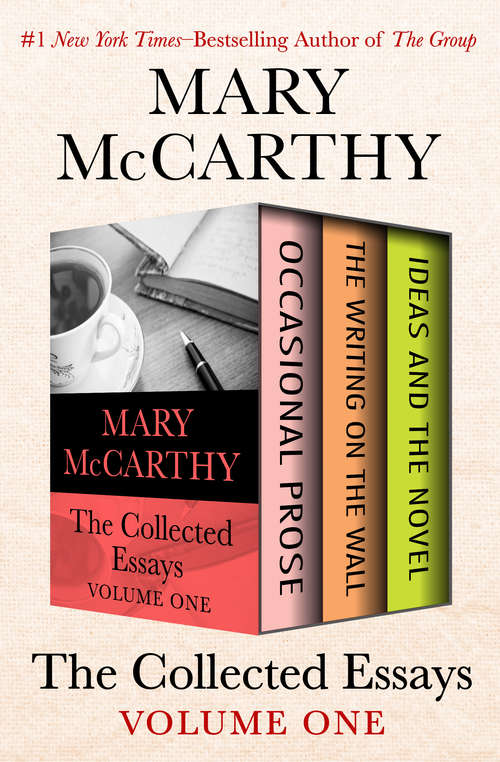
The Collected Essays Volume One: Occasional Prose, The Writing on the Wall, and Ideas and the Novel
Essays, Anthologies, Criticism
Synthetic audio, Automated braille
Summary
Spirited and insightful essays from the #1 New York Times–bestselling author of Memories of a Catholic Girlhood and a &“delightfully polished writer&” (The Atlantic Monthly). Whether penning criticism, memoir, or fiction, the New York Times–bestselling author of The Group… invariably wrote with &“an icily honest eye and a glacial wit&” (The New York Times). Gathered here are three collections of her personal essays and literary criticism. Occasional Prose: McCarthy imbues this collection with her unique gifts of clear-eyed observation, sharp insight, and heartfelt passion as she gives us the story of La Traviata in her own words, reviews a charming and practical book on gardening, revisits Tolstoy&’s Anna Karenina, and eulogizes friends, including Hannah Arendt. &“Bracing opinions tartly expressed . . . May she continue to call us all to attention . . . showing us the world of her imagination, thought and rich experience.&” —The New York Times The Writing on the Wall: With engaging and thought-provoking essays on Madame Bovary, Macbeth, Vladimir Nabokov, George Orwell, William S. Burroughs, J. D. Salinger, and Hannah Arendt, this collection of literary reactions is distinguished by McCarthy&’s savage intelligence, clarity of thought, and utter lack of pretension. &“The brand name tells all. Potential readers do not have to be informed by me of the excellence of this volume—the acumen, intelligence, clarity, wit and lack of bitchiness.&” —Anthony Burgess, The New York Times Ideas and the Novel: In this lively, erudite book, McCarthy throws down the gauntlet: Why did the nineteenth century produce novels of ideas while the twentieth century is so lacking in serious fiction? Could Henry James be a big part of the problem? With verve and passion, McCarthy provides a critique of how the novel has evolved—or not—in the last century. &“[McCarthy&’s] writing is spirited. [Her] musings serve a larger purpose, make a grander statement, or rather, indictment. She means to set the modern novel apart.&” —The Harvard Crimson